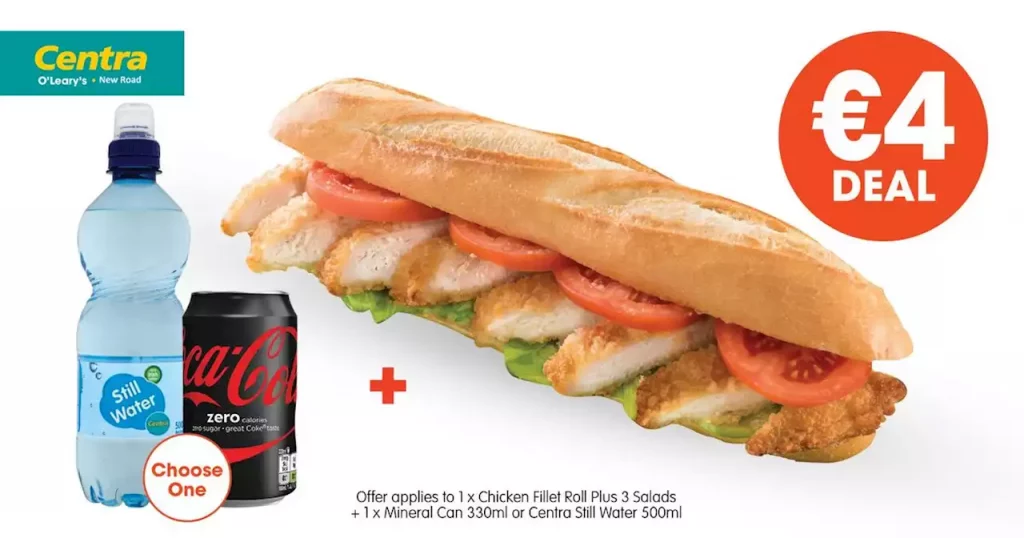HSE want to ban value meal deals

HSE want to ban value meal deals
In this, the era of soaring inflation the HSE wants to put a ban on value. No more will you be allowed to get a meal for a fiver.
Why? Because apparently we have no self-control and meal deals are making us obese. According to the HSE for the first time, people living in Ireland are now more likely to be overweight or obese than of normal weight. This is understandably bad, but how they arrived at meal deals is beyond belief.
The HSE clinical lead on obesity, Dr. Donal O’Shea, says many measures are needed to combat the change, but a ban on convenience store deals involving free soft drinks or chocolate bars with a sandwich is one.

Will banning upselling of value meals really help to decrease obesity rates? Unlikely. Statistically, the only thing that has a massive impact on obesity rates is making ‘wholesome’ foods more affordable. Incentivising healthy eating financially.
That said despite the best efforts of a battalion of ‘wholesome-food heroes’, commonly known as fit-fluencers there is no reasonable scenario under which this kind of food could become cheap and plentiful enough to serve as the core diet for most of Ireland’s obese population.

An enormous amount of propaganda has been dedicated to promoting the notion that all processed food is making us obese. In this narrative, the food-industrial complex has turned all the powers of food-processing science loose on engineering its offerings to addict us to fat, sugar, and salt, causing or at least heavily contributing to the obesity crisis.
This is where the chicken fillet value meal comes in. The wares of these pimps and pushers, we are now told, are to be universally shunned. It is the cashiers’ fault that we are fat for asking if we want a coke with that. We are apparently powerless to the power of suggestion. According to O’Shea thirty per cent of us can’t say no when confronted with “are you sure, it’s a good deal”.

Eradicating value from meals will not stop people from eating a thousand calorie chicken fillet roll. It might not even stop them from getting a coke. What might work is cutting the tax on genuinely nourishing food making it as readily available to at-risk populations as these meal deals are.
But sure why would we expect logical and reasonable actions from a health service that believes nuns will treat women fairly.
Elsewhere on Char: Phase One of Everything
